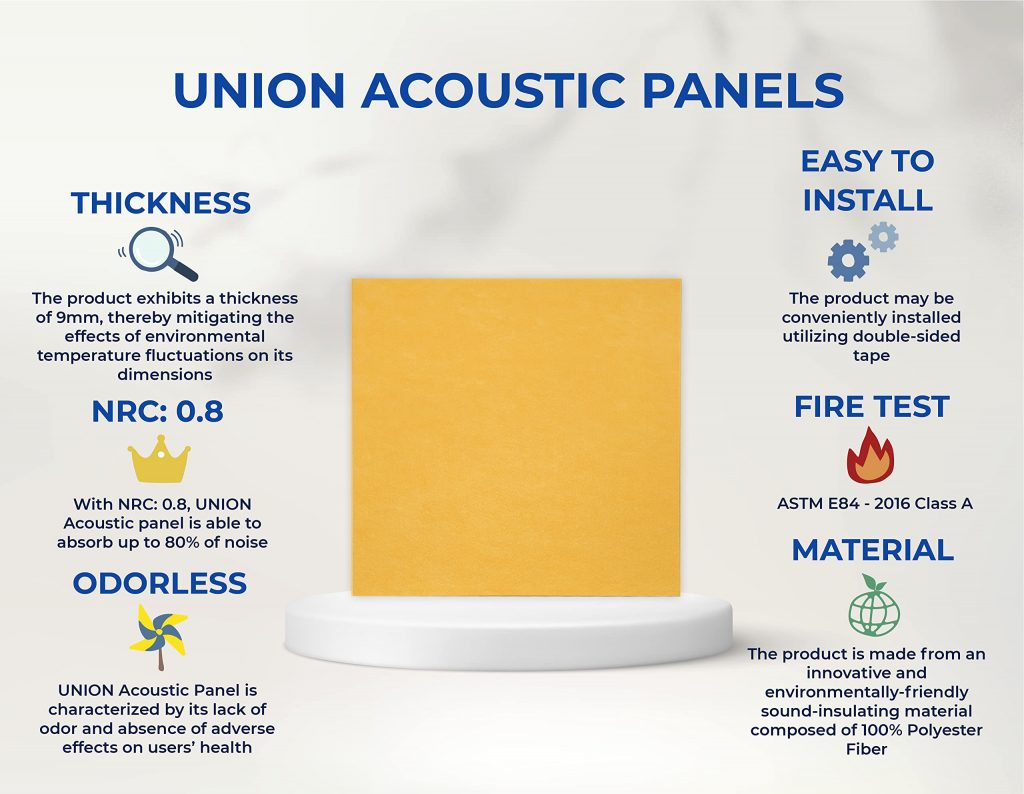
Room soundproofing is an essential aspect of creating a comfortable living or working environment, especially in areas with high noise levels or bustling activity. However, it’s not always an easy task to achieve effective soundproofing, and many people struggle with choosing the right materials and techniques for their space. In this blog post, we’ll explore some of the most effective ways to soundproof a room and create a space that’s quiet, calm, and conducive to productivity or relaxation.
- Identify the source of the noise and the soundproofing requirements
When it comes to effective room soundproofing, the first step is to identify the source of the noise and the corresponding soundproofing requirements. This involves thoroughly evaluating the room and the surrounding areas to determine any external noise sources or internal noise-generating equipment.
Once identified, the level of sound transmission and scale of soundproofing measures needed can be determined. Understanding the acoustic characteristics of the room and the various factors involved in sound transmission is essential to creating an effective soundproofing plan. With proper identification and assessment of the noise source and soundproofing requirements, a comprehensive plan can be developed to achieve the desired level of sound control and noise reduction within a given space.
- Choose the right acoustic insulation materials based on the type of noise and the room structure
One of the key aspects of achieving effective room soundproofing is choosing the right acoustic insulation materials based on the type of noise and the room structure. Different types of noise, such as airborne noise or impact noise, require specific materials and techniques for effective insulation.
For example, fiberglass insulation is great for reducing airborne noise, while underlayment and resilient channels are ideal for impact noise control. Also, understanding the room structure, including wall thickness and ceiling height, can greatly impact the type and amount of insulation required.
- Seal any gaps, cracks or holes in the walls, ceiling, and floor to prevent sound from leaking
One of the essential steps to achieve effective room soundproofing is to seal any gaps, cracks, or holes in the walls, ceiling, and floor to prevent sound from leaking. Even the smallest crack can let in unwanted noise, making soundproofing efforts less effective. Start by inspecting the room for any potential leakage points and seal them with acoustic sealant or specialized acoustic tape. Pay special attention to areas around windows and doors, as these are often the primary culprits for sound leakage.
If your room shares a wall or floor with another unit, ensure that any shared surfaces are also properly sealed to prevent sound from transferring into or out of the room. By sealing all gaps and cracks, you minimize the amount of sound that can leak through, thereby maximizing the effectiveness of your room soundproofing efforts.
- Use sound-absorbing panels, curtains, rugs, and furniture to reduce noise reflection and resonance
To achieve effective room soundproofing, using sound-absorbing panels, curtains, rugs, and furniture can be incredibly helpful. These materials are designed to reduce noise reflection and resonance, essentially preventing sound waves from bouncing around the room. By reducing the amount of noise reflection and resonance, you can create a more comfortable and productive space for work or relaxation.
Using sound-absorbing materials can help reduce noise pollution from outside sources, such as traffic or noisy neighbors. When selecting sound-absorbing materials, it’s important to consider the size of the room, the layout, and the amount and type of noise you want to reduce. By strategically placing these materials in your space, you can achieve a quieter and more enjoyable environment.
Consider hiring a professional soundproofing contractor for more complex or large-scale projects
When it comes to effective room soundproofing, there are a variety of solutions available, from simple DIY projects to advanced specialist techniques. For more complex or large-scale projects, it may be appropriate to consider hiring a professional soundproofing contractor. These professionals have the experience and knowledge needed to tackle even the most challenging soundproofing jobs. They can provide bespoke solutions tailored to your specific needs and are equipped with the latest soundproofing materials and techniques.
Ultimately, choosing to work with a professional soundproofing contractor can save time, money, and stress in the long run, as they can get the job done efficiently and to a high standard. If you’re looking to achieve high-quality soundproofing for your room, hiring a professional may be the way to go.
